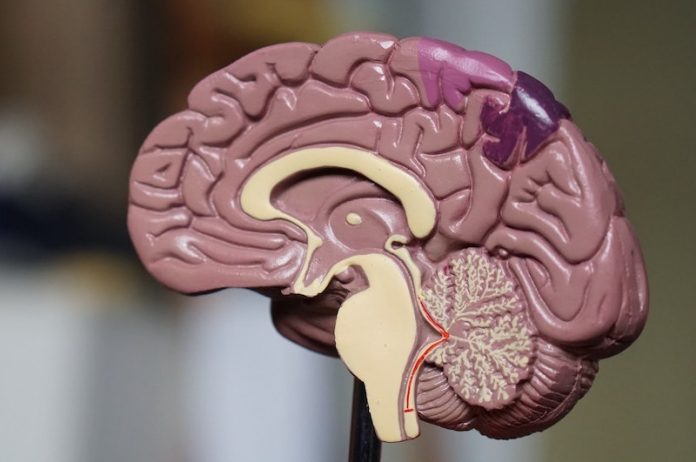
Frontotemporal dementias are a group of fatal and debilitating brain disorders for which there are no cures.
This form of the disease is caused by a genetic mutation in tau, a protein that is a hallmark of Alzheimer’s disease and other dementias.
In a new study from Mount Sinai, researchers found how the mutated tau protein may trigger the death of a specific class of neurons known to be vulnerable in frontotemporal dementia.
They also showed that they could prevent the death of these neurons by treating the organoids with an experimental drug, originally designed to combat Crohn’s disease (A chronic inflammatory bowel disease that affects the lining of the digestive tract).
Frontotemporal dementia is a rare form of dementia that usually begins between ages 40 and 60. It affects the front and side (temporal) areas of the brain, leading to behavior changes and difficulty with speaking and thinking.
In this study, the researchers examined the growth and development of organoids derived from the stem cells of three patients, all of whom carried the V337M mutation in tau.
After six months of growth, signs of neurodegeneration were seen in the organoids.
Most notably, the patient-derived organoids had fewer excitatory neurons, demonstrating that the tau mutation was sufficient to cause higher levels of cell death of this specific class of neurons.
Excitatory neurons usually fire in response to the neurochemical glutamate and are known to die at abnormally high levels in frontotemporal dementia.
The patient-derived organoids also had higher levels of harmful versions of tau protein and elevated levels of inflammation.
The researchers then found that this could be prevented by apilimod, an experimental drug designed to alter a cell’s protein recycling system.
The team says with the aid of tools like cerebral organoids, we can model and learn to understand the causes of dementia.
There is hope is that one day we will develop effective treatments for frontotemporal dementia and other heart-wrenching brain disorders.
If you care about dementia, please read studies about walking patterns may help identify specific types of dementia, and common high blood pressure drugs may help lower your dementia risk.
For more information about brain health, please see recent studies about this tooth disease linked to dementia, and results showing this MIND diet may protect your cognitive function, prevent dementia.
The study is published in Cell. One author of the study is Alison M. Goate, DPhil.
Copyright © 2021 Knowridge Science Report. All rights reserved.



